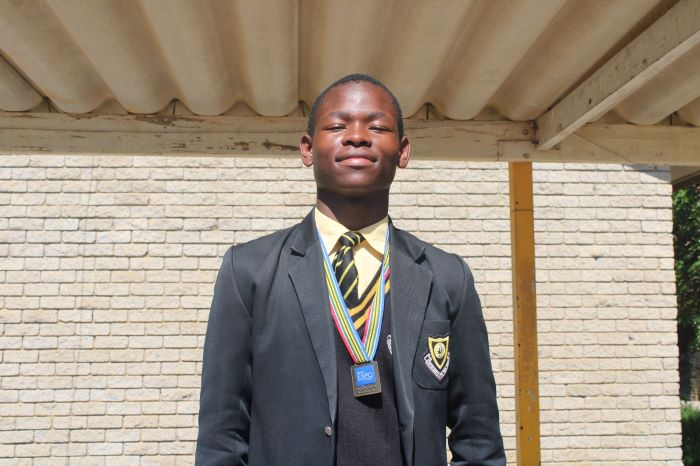By Sisipho Pinyana
Nombulelo Secondary School grade 11 learner Alutha Botha won a bronze medal when he entered the Eskom Expo for Environmental Science held in July this year at Rhodes University.
The Science Expo encouraged learners to identify problems, analyse information about the issue and show their findings. In his project, Alutha explored habitat use by juvenile fishes using remote underwater videos.
Alutha says he had so many questions about fish and their habitat, but one particular question stood out for him and wanted to answer: “Why are there so many fish on one side than on this side?” With that question in mind, Alutha needed to research and find the answer. He says he started the project in December 2022 while on a school camping trip.
“Firstly, the project was never meant to be [part of]an expo but only for me to answer the questions I had for myself and also to enter a competition since I am a science kid,” he says. The idea was never meant to be submitted to Eskom. Still, when Eskom Expo for Young Scientists Eastern Cape Provincial Coordinator Fredy Mashate went to his school to introduce the competition, Alutha changed his mind. “I did not even want to do it, but when I learned about it, I thought I should just try it,” he says.
Alutha says he has had a passion for marine and science since grade 9 and sees himself pursuing a career in that field. He adds that he is primarily interested in discovering how marine life affects humans and wants to educate people about the area of research so that people can better understand how oceans are affected.
Although Alutha won a bronze medal in a science competition, it is not the first time he has won an award. Previously, he received a gold medal and was one of the seven learners who competed in the International Science Fair. From there, he won a tablet for best environmental science project and received a full one-year bursary at Rhodes University. He also won a mentorship programme from the Durban University of Technology (DUT) worth about R20 000 and a bronze in the international category.
Alutha says, “My job is not done, but I will keep going because I think there’s more to know and learn.”
To encourage youth, especially learners, Alutha says that the advice he would give them is for them to keep trying to find answers, even if it seems impossible. He adds by saying that projects are complex and require a lot of effort, so one must sacrifice their time to be the best in the field and start immediately with a winner’s mindset.


